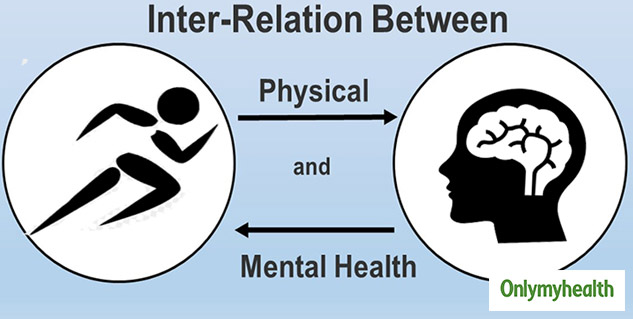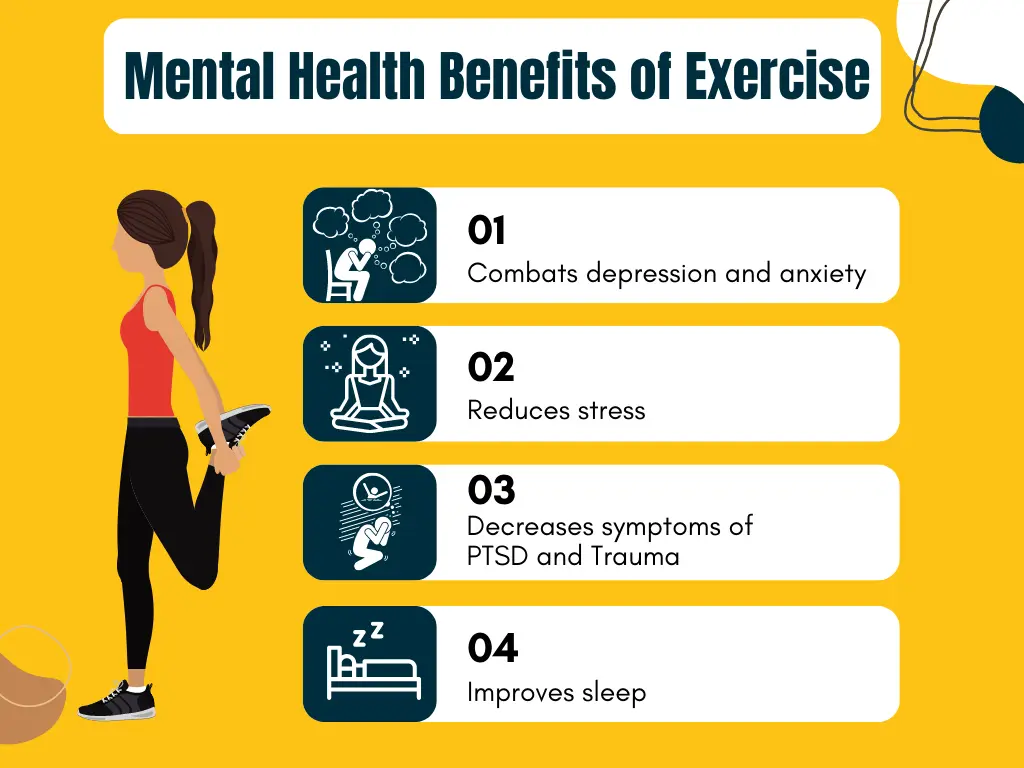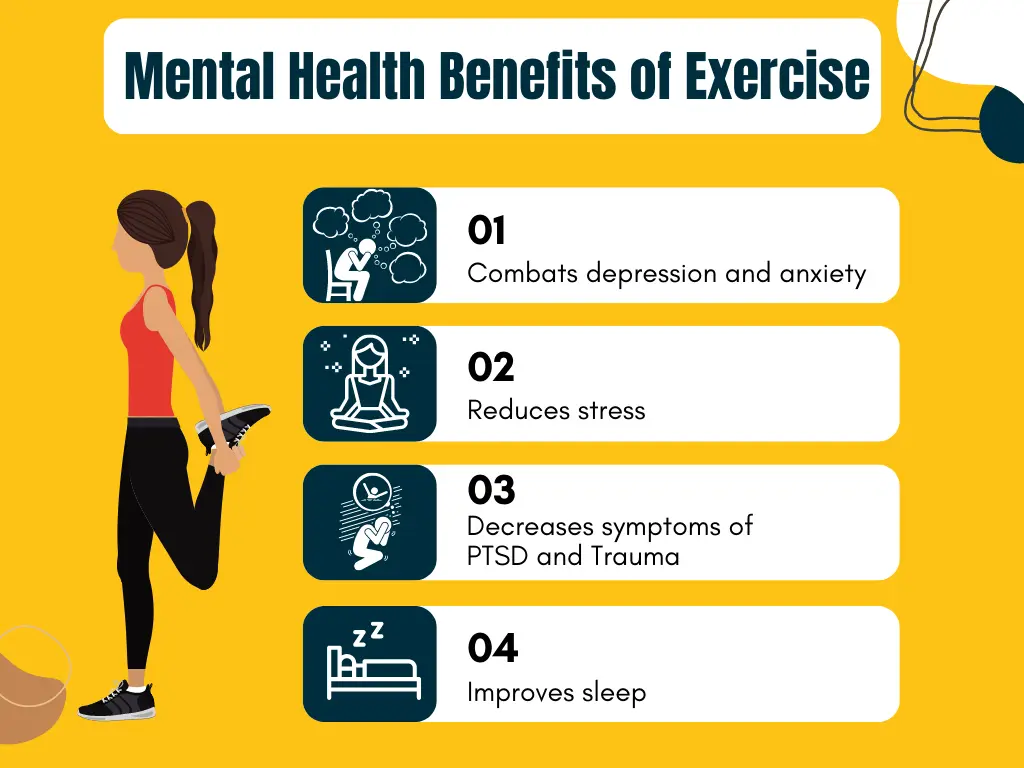In today’s world, fitness and physical health are often at the forefront of health and wellness discussions. We’re constantly encouraged to exercise more, eat better, and adopt healthy habits to improve our physical well-being. However, mental health is just as important, if not more so, in leading a balanced, healthy life. The connection between mental health and fitness is profound, and understanding how they influence each other is crucial for achieving overall well-being.
Mental Health and Fitness: Why It’s Important to Balance Both

1. The Connection Between Mental Health and Fitness
Fitness and mental health are inextricably linked. When you exercise, your body releases endorphins, which are chemicals in the brain that act as natural painkillers and mood elevators. These endorphins help reduce stress, anxiety, and depression, contributing to a better mental state. Physical activity also promotes the release of neurotransmitters like dopamine and serotonin, which regulate mood and emotions.
On the flip side, poor mental health can make it difficult to stay physically active. Anxiety, depression, and chronic stress can lead to fatigue, lack of motivation, and a decreased interest in exercise. This can create a negative cycle where mental health issues hinder fitness efforts, and lack of physical activity further exacerbates mental health challenges.
Here’s a closer look at how mental health and fitness are intertwined:
- Exercise as a Mood Booster: Regular physical activity has been shown to improve mood and reduce symptoms of depression and anxiety. Exercise stimulates the production of endorphins, which helps alleviate stress and create a sense of well-being. Even a short walk or a quick workout can provide an immediate mental boost.
- Stress Reduction: Exercise is a natural stress reliever. Physical activity lowers cortisol levels (the stress hormone) in the body, helping you manage stress more effectively. Engaging in activities like yoga, tai chi, or even running can calm your mind and provide relief from daily pressures.
- Enhanced Cognitive Function: Regular exercise improves brain function, including memory, focus, and creativity. Physical activity increases blood flow to the brain, which can help reduce brain fog and improve mental clarity. This is especially important when you’re dealing with work or academic challenges that require a sharp mind.
- Better Sleep: Fitness positively impacts sleep, which is critical for mental health. Exercise helps regulate your sleep-wake cycle, leading to better quality rest. Sleep deprivation is often linked to mental health issues like anxiety and depression, so staying active can help break that cycle.
2. The Impact of Mental Health on Fitness Goals
Just as fitness benefits mental health, mental well-being plays a crucial role in achieving your fitness goals. When your mental health is suffering, your ability to stay committed to your physical health may also suffer. Mental health issues can impact your motivation, energy levels, and overall commitment to exercise.
- Motivation and Consistency: Mental health issues such as depression can make it difficult to find the motivation to exercise regularly. Even if you know that working out will make you feel better, the mental fatigue and lack of energy associated with poor mental health can be paralyzing. On the other hand, when your mental health is stable, it’s easier to stay motivated and consistent with your fitness routine.
- Body Image and Self-Esteem: Poor mental health can negatively affect how you view your body and yourself. Body image issues and low self-esteem can make exercise feel like a punishment rather than something enjoyable. Striking a balance between fitness and mental health helps you approach exercise with a healthier mindset, focusing on what your body can do rather than how it looks.
- Exercise as a Stressor: While exercise is often a stress reliever, it can also become a source of stress if not approached with the right mindset. Overtraining, pushing yourself too hard, or becoming obsessive about fitness can lead to burnout and mental exhaustion. It’s important to recognize when exercise is adding to your stress and to allow yourself rest days when needed.
3. Finding Balance: How to Maintain Both Mental Health and Fitness
Balancing mental health and fitness requires a holistic approach that prioritizes both physical and emotional well-being. Here are some strategies to help you maintain that balance:
- Set Realistic Goals: When it comes to fitness, setting achievable and realistic goals is essential. Unrealistic goals can lead to disappointment, frustration, and stress, which can take a toll on your mental health. Focus on progress rather than perfection, and celebrate small victories along the way.
- Incorporate Mindfulness Practices: Integrating mindfulness practices like meditation, deep breathing exercises, or yoga into your routine can benefit both your mental health and fitness. Mindfulness helps reduce stress, improve focus, and promote relaxation, all of which are important for maintaining balance in your life.
- Listen to Your Body: Pay attention to your body’s signals and give yourself permission to rest when needed. Overtraining can lead to physical and mental burnout, so it’s important to take rest days and prioritize recovery. Remember that rest is an essential part of any fitness routine and contributes to better mental health.
- Engage in Activities You Enjoy: Exercise doesn’t have to be a chore. Find physical activities that you genuinely enjoy, whether it’s dancing, hiking, swimming, or playing a sport. When you’re engaged in activities that bring you joy, you’re more likely to stick with them and experience the mental health benefits that come with regular exercise.
- Connect with Others: Social connections are vital for mental health, and combining fitness with social interaction can be a powerful way to enhance your well-being. Joining a fitness class, participating in group sports, or simply working out with a friend can provide emotional support and make exercise more enjoyable.
- Prioritize Sleep: Sleep is essential for both mental health and physical recovery. Make sure you’re getting enough quality sleep each night to support your overall well-being. A well-rested body and mind are better equipped to handle the challenges of daily life and stay consistent with fitness routines.
- Seek Professional Help When Needed: If you’re struggling with mental health issues, it’s important to seek professional help. Therapy, counseling, or speaking with a mental health professional can provide the support and guidance needed to manage mental health challenges and maintain balance in your life.
4. The Long-Term Benefits of Balancing Mental Health and Fitness
Achieving a balance between mental health and fitness has long-term benefits that extend beyond the gym or your current fitness goals. When you prioritize both aspects of your health, you’re more likely to experience:
Mental Health and Fitness: Why It’s Important to Balance Both

- Improved Quality of Life: A healthy balance between mental health and fitness leads to a better quality of life. You’ll feel more energized, motivated, and capable of handling life’s challenges with resilience and grace.
- Greater Longevity: Both physical fitness and mental well-being are linked to a longer, healthier life. Regular exercise, combined with good mental health, reduces the risk of chronic diseases, improves heart health, and supports cognitive function as you age.
- Sustained Happiness and Fulfillment: Striking a balance between mental health and fitness can lead to a greater sense of happiness and fulfillment. When you feel good both mentally and physically, you’re more likely to experience positive emotions, maintain healthy relationships, and pursue your passions with enthusiasm.
Conclusion
Balancing mental health and fitness is essential for overall well-being. While physical fitness is important for maintaining a healthy body, mental health is equally crucial for leading a happy, fulfilling life. By understanding the connection between the two and prioritizing both, you can achieve a state of balance that allows you to thrive in all areas of your life. Remember, health is holistic, and taking care of your mind is just as important as taking care of your body.
Mental Health and Fitness: Why It’s Important to Balance Both


Comments